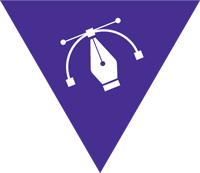
This article was first published in Lex Witness January 2017 issue.
Following up from last issue’s article – The Recipe to Running a Successful Law Firm – Appetizers, we continue to delve deeper into the various roles each of the non-legal department sub functions play within the law firm, and the reasons for centralizing them in the respective departments.
The identified non-legal departments and their respective sub functions were as follows:
Operations – Since this is an overarching department, with its responsibilities spread across various functions of the law firm’s practice, the various sub functions within it include:
- Administration
- Systems & Information Technology
- Project Management
- Finance & Accounting
Strategy & Business Development – The main focus of this department being the firm’s reputation, positioning in the market and the business growth from a strategic level, the primary sub functions within this function desk include:
- Corporate Communication
- Business Strategy
- Marketing
- Client Development & Management
Human Resource Management – With this department’s key focus being internal resource development and talent management, the crucial sub functions include:
- Talent Management
- Knowledge Management
- Corporate Trainings
- Resource Development
Operations – The Backbone
Operations is a crucial part of the law firm functioning. The department overall ensures that a business has the proper procedures and systems in place, to effectively grow the organization and to ensure financial strength and operating efficiency. Hence, it is only sensible to centralize all the essential sub divisions whose functions address the firm’s internal management and systems.
Administration is responsible for the firm’s key in-house secretarial services, while Systems & IT is responsible for not just ensuring efficient client servicing through the most updated technologies, but also protecting the firm’s in-house information from various cyber threats.
The Project Management team ensures efficient time and resource management within the firm to handle all relevant matters, while Finance & Accounting is responsible for sound financial health of the firm, both via revenue and expenditure tallies.
Crucial elements like ERP system, web conferencing portals, data management and sharing software and many more, all come within the periphery of Operations department’s decision making and execution.
Strategy & BD – The Head on the Shoulders
This department is responsible for the firm’s overall brand and business growth, and in a lot of instances to be the face and voice of the firm. The growth of the firm is not just restricted to offering excellent legal advice to clients. A firm should also simultaneously invest in branding and positioning initiatives, while identifying various strategically smart routes for organic and lateral growth.
Whether it’s about being seen in the right places at the right time, or identifying the right partners (domestic and international) to collaborate with; this department’s job is to ensure effective and efficient growth through the right measures. For this, the Strategy & BD department has to understand the DNA of the firm, and work towards channeling the firm’s strengths towards the right direction through the right platforms. This department also needs to be aware of the firm’s weaknesses and untapped opportunities that the firm can master.
Mergers & acquisitions, new and/or latent practice developments, existing ‘cash cow’ like practice growth and many more such active strategic decisions and execution fall in the domain of this department. Such intensive objectives require creative initiatives, with the challenging need for optimal use of resources in terms of time and manpower.
HR – The Heart
An efficient HR department can enhance the firm’s work force strength by planning, implementing, and evaluating employee relations and human resources policies, programs, and practices. Your employees are your assets. In a service based industry, your talent is your product and your capital, and it is crucial to value and develop your in-house talents. Investing in the development of your talent is a guaranteed approach to not only focus new client acquisition, but also ensuring that your existing clients are satisfied.
Whether it is identifying the right talent through organic growth or lateral hires, or developing the in-house talent through training, mentorship and fair appraisals; human resource management is key to an efficient and sustainable functioning of the firm’s business and transforming it into an institution to reckon with.
While the lawyers (the talent) are the Soul of the firm, without the Head, the Heart and the Backbone, it may almost be not possible for a firm to not just grow but in fact survive in this ever shifting and always competing world. For a sustainable business institution to thrive, the management should be ready to commit and foster an inclusive and encouraging environment where both the legal and non-legal functions can co-inhabit and support each other to grow in unison.
I am the Principal Consultant at the Lex Witness Strategic Counsel Desk, an invitation based initiative, which caters to various entities who seek to create and improve their brand and undertake market activation strategies in the Indian legal market space. Much beyond the space of the magazine, the Strategic Counsel Desk aspires to provide a holistic framework for the firm’s positioning and business growth, primarily focusing on the strength in the Indian legal industry.








